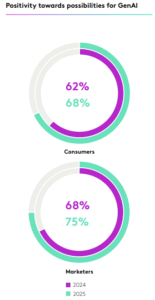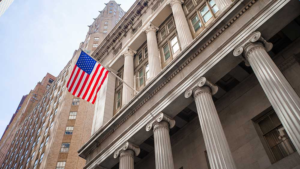Public reaction to Coca‑Cola’s 2025 AI-driven holiday ads has been mixed, as the brand experiments with generative AI to refresh its iconic seasonal storytelling. Since the campaign’s launch, 10.2% of conversations were positive and 32% negative, compared with 23.8% positive and 31.4% negative prior to the ad, according to media intelligence firm CARMA.
Netizens criticised the ads for a perceived lack of creativity and nostalgia relative to previous campaigns, saying the “magic” historically associated with Coca‑Cola seems diminished by the increased reliance on AI. Many also expressed frustration that cost-cutting and AI production appear to be prioritised over artistic quality, with some questioning the continued use of AI despite past criticism.

Data from Truescope further highlights the diversity of online reactions. Most discussions (93.8%) were neutral, focusing on the broader trend of AI in advertising and referencing Coca‑Cola’s AI-powered holiday campaign from the previous year.
Don’t miss: Can an ‘AI generated’ label really build trust, or will it slow the industry down?
Around 3.1% of users shared mixed opinions, questioning the cost-effectiveness of using AI and the decision to forgo traditional artists. Negative sentiment accounted for 1.5%, with critics calling the ad “bland” and “soulless,” and some even expressing support for competitor brands such as Pepsi. A small group (1.5%) suggested that the AI controversy itself might be an intentional marketing tactic to generate attention.

Despite the divided response, Coca‑Cola is pressing ahead with its 2025 global holiday campaign, “Refresh your holidays”, which celebrates those working behind the scenes to bring seasonal magic to life.
The campaign features three new films, including “A holiday memory” and two AI-driven reimaginings of the 1995 classic, “The holidays are coming”. “A holiday memory”, slated for North America, Latin America and Asia South-Pacific, follows a busy mother who discovers the spirit of the season after sipping an ice-cold Coca‑Cola and spotting a magical ornament.
Beyond films, the campaign will see the return of Coca‑Cola Caravans and its Truck Tour in November and December, offering immersive community experiences. Out-of-home creative, in-store merchandising and additional activations will complement the fully integrated effort.
AI also plays a central role in Coca‑Cola’s approach this year. Working with San Francisco studios Secret Level and Silverside AI, the brand produced updated versions of “The holidays are coming”, combining technical precision, cinematic storytelling and production quality. The brand said AI tools streamline workflows, allowing teams to quickly produce multiple versions of a film for different audiences or geographies, giving creators unprecedented freedom and control.
“Building on last year’s campaign, this creative truly embodies our commitment to inspiring the ‘Real magic’ of authentic human connection during the holiday season,” said Islam ElDessouky, global vice president, creative strategy and content. “We’re saluting people around the world whose generous acts of goodwill help make Christmas the most special time of year and rewarding them with the refreshment and uplift only Coca‑Cola can deliver.”
ElDessouky noted the creative challenge for a brand with such deep holiday roots is balancing innovation with tradition. “We consistently hear that consumers don’t feel it’s Christmas until they see the timely and timeless Coca‑Cola advertising they know and love,” he said. “While our expression changes year after year, the fundamentals stay the same. People want authentic, genuinely touching storytelling that makes Coca‑Cola special.”
Pratik Thakar, global vice president and head of generative AI, highlighted how AI enhanced production: “Leveraging advanced GenAI tools, we controlled every cinematic detail, from camera angles to physics-driven realism, with intuitive visual annotations mimicking a director’s workflow. Most revolutionary is our seamless narrative continuity and character consistency, crafting immersive stories that resonate deeply. This is more than filmmaking — it’s a transformational leap into the future of creativity and technology.”
Thakar emphasised that human creativity remains central. “The music in the films was performed and sung by real artists. AI is a human enabler, making what was previously impossible possible, but creative ambition, direction and thought leadership has and always will be human-led.”
Coca‑Cola’s investment in AI reflects its ongoing digital transformation. “Last year we set a global milestone with the world’s first entirely GenAI-created broadcast film,” Thakar said. “This year’s campaign is another proof point in our journey of using emerging technology to rethink how we create and scale content.”
MARKETING-INTERACTIVE has reached out for more information.
The move builds on the brand’s 2024 experimentation with AI in its holiday advertising, which also drew mixed reactions. That year, Coca‑Cola’s AI-generated reboot of “The holidays are coming” blended sweeping shots of nature, iconic truck caravans, and festive neighborhood scenes. While some praised the efficiency and technical execution, others found the ad “distasteful,” “soulless” or “uninspiring”.
Related articles:
UNIQLO Malaysia responds to claims that Oriental Kopi collab artwork was AI-generated
UK models launch petition to protect likeness from AI misuse
PepsiCo says it will be ‘agentic AI-first’ by 2026





